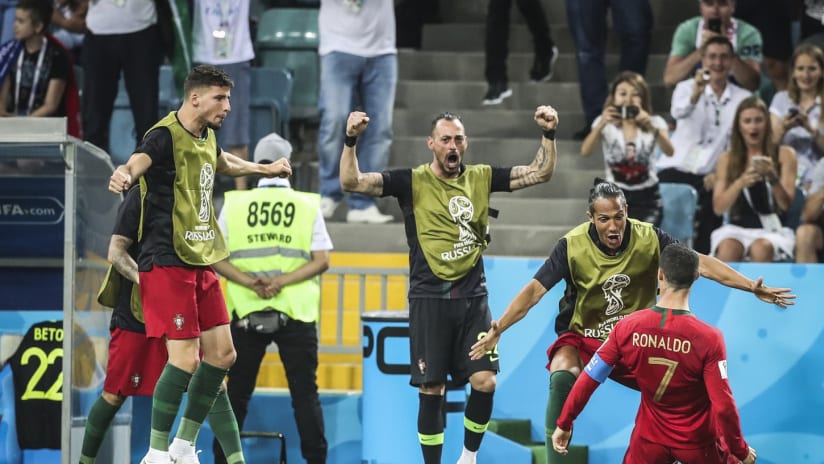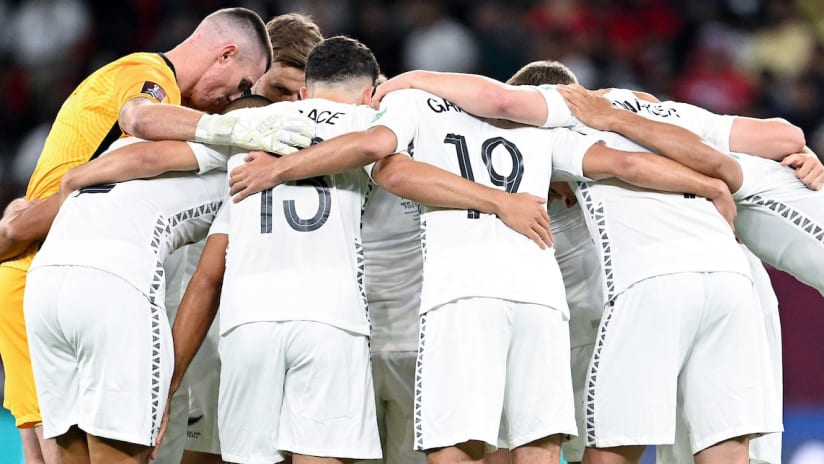The collective groan from the western soccer world was as mind-numbing as the hum coming from the Krestovsky Stadium crowd. It was a flashback, a stress reaction, something the world tried so hard to reject with prejudice eight years ago. I thought we were done with vuvuzelas, the world seemed to lament, the Saint Petersburg crowd thrusting us back into their 2010 hell.
It’s almost impossible to overstate how harshly the we reacted to South Africa’s vuvuzelas. From that World Cup’s opening moments, when the bass-heavy hum from the plastic air horns overwhelmed ESPN’s broadcasts, we recoiled with not only a sense of disdain but also injustice. This wasn’t just foul, in an auditory sense. On a moral level, it was wrong.
Stadium bans began appearing out of nowhere, in places the air horns had scarcely appeared before. They’re still not allowed at Providence Park. People who had never even heard of the instrument, suddenly had very strong, very visceral feelings about this very new thing they were being exposed to. “Bzzzzzzzzzzzzzzzzzzzz.” became the unofficial transcript of the vuvu, something that read as half indictment, half …

Understandably, given the typical environment at our soccer games, we find something jarring about such a discordant sound. At least, it’s discordant when you're used to the chanting, singing and yelling that tend to accompany matches in our part of the world. Nobody wants to watch a game from the center of an agitated bee hive, and when the vuvuzelas are in full force, it sounds like a hornet’s nest has been doused in tobasco.
But in the reaction we’ve had to vuvuzelas, there’s something little slightly unsettling. It feels akin to traveling the world, immersing yourself amid new customs, and deciding something otherwise innocuous is, definitely, based on a little bit of your own experience, wrong. This isn’t just trying a new food and finding you don’t like it, and it isn’t hearing new music and deciding not to listen. The reaction to vuvuzelas, eight years ago, implied there was something universally, incontrovertibly wrong about their use. it's the kind of reaction which, if we saw it applied to other aspects of people's cultures, would feel very inappropriate, and rude.
In some ways, things like the vuvuzelas are what World Cups should be about. These events rise above other tournaments because they bring cultures together, doing so through the prism of our shared sport. We get to see new styles and different histories expressed on the field, in the goal celebrations, fan costumes, as well as the anthems and songs that radiate from the crowds. Vuvuzelas are just an extension of those worlds, and while we might find their sounds onerous, they are, at their core, a reflection of culture.
The soccer world does a lot of policing of support. You’re supposed to sing, if you're truly embracing the sport. And when you do, you chant for 90 minutes, strong. You don’t treat the game like it’s baseball, and you don’t support through a plastic airhorn. Perhaps with reason, fans don’t want vuvuzelas at Providence Park.
But ultimately, nobody should tell Timbers and Thorns fans how to support. And in the same way, perhaps we shouldn’t be so judgmental of what other fans do. There might be a strawman, in here, depicting our views as so intolerant, but in the reaction to today’s Saint Petersburg hum, there was a palpable recoil, when ultimately, these artifacts of different cultures are part of what Russia 2018 could be about.
The results
All this talk about plastic horns buries the obvious lede: three games; three amazing finishes.
1. Uruguay and Egypt started the day at 5:00 a.m. PT, finishing a first round of Group A play that began yesterday, with Russia’s 5-0 throttling of Saudi Arabia. This game looked destined to produce exactly five fewer goals until a late, ill-advised foul from the Egyptian defense conceded a set piece, one that allowed La Celeste to join the hosts at the top of their group:
2. Similar dramatics defined the start of Group B, where a strong start from Morocco was eventually tamed, equalized, and rebuked by Iran, who scored the game’s only goal in second-half stoppage time despite going the whole period without a shot on target:
- And finally the match of the day, which may very well prove the match of the tournament, which gave us a man of the match performance that was memorable even by Cristiano Ronaldo’s standards. A cynic (raises hand) might note that two
dives
instances of selective embellishment and a David de Gea howler fueled his hat trick, but it was still a freakin' World Cup hat trick! One that was capped off by this late-match equalizer, after Spain had overcome two Portugal leads:
This World Cup’s off to an amazing start.
The lighter stuff
1. Nacho’s goal
This is the most pure thing you’ll see all tournament, a goal that would have held up as the late game’s winner, if it wasn’t for Ronaldo’s late magic. The double post may have a special meaning in Timbers culture, but I’ll be damned if this isn’t one hell of a double-post goal:
2. No, no, no Mo Salah
Before we took our angst out on vuvuzelas, we registered a collective complaint about Egypt head coach, Héctor Cúper, who kept the tournament’s golden child, Liverpool superstar Mohamed Salah, on the bench throughout his team’s opening-match loss. We all know why Salah was kept out – he suffered a shoulder injury at the hands of Real Madrid Sergio Ramos in the UEFA Champions League final – but amid three weeks of the Egyptian Federation telling us Salah might go, we got our hopes up. Thanks for nothing, Egypt.
3. Iran’s piece of history
Yesterday, U.S. Soccer was drawn into the conversation, having once been on the wrong end of the most-lopsided result for a host in tournament history. That result came in 1934, at the hands of Italy (7-1), and came back into view when Russia destroyed the Saudis.
Today, the U.S. was back in the news once again, when Iran were given their late goal against Morocco. It was only the Iranians' second win in their World Cup history. Their first? Twenty years ago, in France, over the United States, who went on to finish 32nd out of 32 teams at the 1998 World Cup.
Guzmán and Polo
As far as the Timbers' two players at the World Cup goes, time is winding down before they make their debuts, with both Andy Polo's Peru and David Guzmán's Costa Rica on site in Saransk and Samara, respectively, for their weekend games.
Peru takes the field tomorrow at Mordovia Stadium against Denmark, a team, as Peru head coach Ricardo Gareca was told by the press, has a distinct size advantage over his side. Gareca's retort? My side is exactly the size it needs to be.
For Costa Rica, the first bad news of the World Cup came as New York City FC defender Ronald Matarrita was ruled out for the competition with a hamstring injury. But, as Guzmán told the media yesterday, los Ticos were still aiming for the same goals: defending their country, and forging a new history.
Guzmán's side has one more day of preparation before opening their tournament against Serbia.
On deck
Set your alarm clocks now. By the time Portugal and Spain were done, we were only 14 hours away from Saturday’s first kickoff, a 3 a.m. PT affair that will firmly test how much you love World Cup soccer.
The day kicks off with one of the tournament’s favorites, France, facing Australia to open Group C play, with Group D kicking off three hours later (6:00 a.m. PT) when Argentina faces international sweethearts Iceland. Come 9:00 a.m., it’s back to Group C, with Polo and Peru in a pivotal game against Denmark, while the day’s action finishes with a noon kickoff between Croatia and Nigeria.
Come this time, tomorrow, we will have seen half of Russia 2018’s field. And, we will also be facing a small window to nap before Portland Thorns FC kicks off against the Chicago Red Stars on ESPNEWS (5pm PT).
That game is going to be worth your time. Promise. Christine Sinclair and Sam Kerr always are. But just as you’ll have to throughout the rest of the World Cup, you’re going to need to pace yourself, stretch, and make sure to mix in the occasional walk. Fluids are going to be important. And, when you’re given a window to go comatose for three hours, consider passing out to be your unofficial doctor’s orders.












